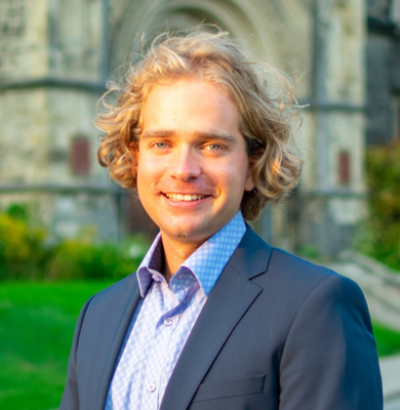 By Pepper Parr
By Pepper Parr
May 30th, 2022
BURLINGTON, ON
We are fortunate to have a young person writing a column for us.
Connor Fraser, a graduate student at the University of Toronto writes once a month (weèd like more)
He has been tasked with writing on subject and doing his best to reflect the views of his demographic and his peers.
In the past he has written about his chances of actually being able to buy a house when he reaches that stage in his life.
His next column is due after the provincial election.
In going over what he has planned he made the following comments about the provincial election and the way Burlington has handled it.
“Regarding the race in Burlington, I think the PC will likely win but I’m disappointed by the character of the campaigns, especially the candidate selection process held by each party.
“Not much transparency or opportunity for debate within the Liberal nomination race, and zero within PC. No chance for the Liberal nominees to debate each other beyond a pre-written, 5 min speech.
“There should have been more debates, too. Only one chamber of commerce debate – which was more of a Q&A session from what I heard. What about a good old fashioned debate, I think the people of Burlington deserve a few different events/venues to observe the major issues being dissected.
“Overall, a very sad, tired looking affair.”
A little more about this young man.

Connor Fraser
Connor was born in Hamilton in 1997, is a long-time resident of Aldershot. He attended Waterdown Montessori School, Glenview Public School, Burlington Christian Academy and Aldershot High School, graduating in 2015. Passionate about the issues facing Burlington, Connor has volunteered for several local organizations and advocated to municipal leaders on building transit oriented, walkable communities. His career goal is to help Burlington – and Canada – navigate the challenges of transitioning towards a just and inclusive low-energy economy.
In 2020, Connor completed undergraduate studies at the University of Toronto, with a B.A.Sc. in Engineering Science and a major in Electrical and Computer Engineering.
Between 2018 and 2019, he worked as a member of the technology development team at Microchip Corporation (North San Jose, California) where he contributed to the design of computer memory for FPGA chips. While pursuing engineering studies, Connor volunteered for the U of T Human Powered Vehicles Design Team as a machinist and led the design of a rollover detection system for high-speed tricycles. During the summer of 2013, 2015 and 2017, Connor lived in Quebec thanks to support from the YMCA Student Work Summer Exchange, and the Explore Program and is decently proficient in spoken French.
Connor has returned to U of T to enrol in the dual Master of Global Affairs and Master of Business Administration program.















Connor, the most important part of any “debate” is that ability of the audience, the electorate, to ask direct, pointed questions of candidates in the vain hope they might actually answer the questions put to them rather than spin into what they wish to talk about. At debates there is no real debates. Candidates should be out on the hastings meeting and interacting directly with their constituents.
I’ve been to two local “debates” in the past 12 years. I will not waste my time any further. Here’s what happens–constituents show up to ask questions/ candidates invariably deflect to another topic unless it’s a softball question. My general observation was that most of the attendees had already made up their mind. I doubt very much that these local “debates” achieve anything.